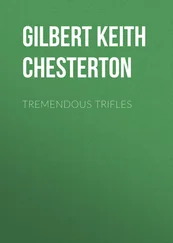Gilbert Chesterton - Manalive
Здесь есть возможность читать онлайн «Gilbert Chesterton - Manalive» весь текст электронной книги совершенно бесплатно (целиком полную версию без сокращений). В некоторых случаях можно слушать аудио, скачать через торрент в формате fb2 и присутствует краткое содержание. Год выпуска: 1912, Издательство: Thomas Nelson and Sons, Жанр: Классическая проза, на английском языке. Описание произведения, (предисловие) а так же отзывы посетителей доступны на портале библиотеки ЛибКат.
- Название:Manalive
- Автор:
- Издательство:Thomas Nelson and Sons
- Жанр:
- Год:1912
- ISBN:нет данных
- Рейтинг книги:3 / 5. Голосов: 1
-
Избранное:Добавить в избранное
- Отзывы:
-
Ваша оценка:
- 60
- 1
- 2
- 3
- 4
- 5
Manalive: краткое содержание, описание и аннотация
Предлагаем к чтению аннотацию, описание, краткое содержание или предисловие (зависит от того, что написал сам автор книги «Manalive»). Если вы не нашли необходимую информацию о книге — напишите в комментариях, мы постараемся отыскать её.
Manalive — читать онлайн бесплатно полную книгу (весь текст) целиком
Ниже представлен текст книги, разбитый по страницам. Система сохранения места последней прочитанной страницы, позволяет с удобством читать онлайн бесплатно книгу «Manalive», без необходимости каждый раз заново искать на чём Вы остановились. Поставьте закладку, и сможете в любой момент перейти на страницу, на которой закончили чтение.
Интервал:
Закладка:
“The next document in our dossier,” continued Inglewood, “comes from the town of Crazok, in the central plains of Russia, and runs as follows:–
“Sir,–My name is Paul Nickolaiovitch: I am the stationmaster at the station near Crazok. The great trains go by across the plains taking people to China, but very few people get down at the platform where I have to watch. This makes my life rather lonely, and I am thrown back much upon the books I have. But I cannot discuss these very much with my neighbours, for enlightened ideas have not spread in this part of Russia so much as in other parts. Many of the peasants round here have never heard of Bernard Shaw.
“I am a Liberal, and do my best to spread Liberal ideas; but since the failure of the revolution this has been even more difficult. The revolutionists committed many acts contrary to the pure principles of humanitarianism, with which indeed, owing to the scarcity of books, they were ill acquainted. I did not approve of these cruel acts, though provoked by the tyranny of the government; but now there is a tendency to reproach all Intelligents with the memory of them. This is very unfortunate for Intelligents.
“It was when the railway strike was almost over, and a few trains came through at long intervals, that I stood one day watching a train that had come in. Only one person got out of the train, far away up at the other end of it, for it was a very long train. It was evening, with a cold, greenish sky. A little snow had fallen, but not enough to whiten the plain, which stretched away a sort of sad purple in all directions, save where the flat tops of some distant tablelands caught the evening light like lakes. As the solitary man came stamping along on the thin snow by the train he grew larger and larger; I thought I had never seen so large a man. But he looked even taller than he was, I think, because his shoulders were very big and his head comparatively little. From the big shoulders hung a tattered old jacket, striped dull red and dirty white, very thin for the winter, and one hand rested on a huge pole such as peasants rake in weeds with to burn them.
“Before he had traversed the full length of the train he was entangled in one of those knots of rowdies that were the embers of the extinct revolution, though they mostly disgraced themselves upon the government side. I was just moving to his assistance, when he whirled up his rake and laid out right and left with such energy that he came through them without scathe and strode right up to me, leaving them staggered and really astonished.
“Yet when he reached me, after so abrupt an assertion of his aim, he could only say rather dubiously in French that he wanted a house.
“‘There are not many houses to be had round here,’ I answered in the same language, ‘the district has been very disturbed. A revolution, as you know, has recently been suppressed. Any further building–’
“‘Oh! I don’t mean that,’ he cried; ‘I mean a real house–a live house. It really is a live house, for it runs away from me.’
“I am ashamed to say that something in his phrase or gesture moved me profoundly. We Russians are brought up in an atmosphere of folk-lore, and its unfortunate effects can still be seen in the bright colours of the children’s dolls and of the ikons. For an instant the idea of a house running away from a man gave me pleasure, for the enlightenment of man moves slowly.
“‘Have you no other house of your own?’ I asked.
“‘I have left it,’ he said very sadly. ‘It was not the house that grew dull, but I that grew dull in it. My wife was better than all women, and yet I could not feel it.’
“‘And so,’ I said with sympathy, ‘you walked straight out of the front door, like a masculine Nora.’
“‘Nora?’ he inquired politely, apparently supposing it to be a Russian word.
“‘I mean Nora in “The Doll’s House,”’ I replied.
“At this he looked very much astonished, and I knew he was an Englishman; for Englishmen always think that Russians study nothing but ‘ukases.’
‘“The Doll’s House”?’ he cried vehemently; ‘why, that is just where Ibsen was so wrong! Why, the whole aim of a house is to be a doll’s house. Don’t you remember, when you were a child, how those little windows WERE windows, while the big windows weren’t. A child has a doll’s house, and shrieks when a front door opens inwards. A banker has a real house, yet how numerous are the bankers who fail to emit the faintest shriek when their real front doors open inwards.’
“Something from the folk-lore of my infancy still kept me foolishly silent; and before I could speak, the Englishman had leaned over and was saying in a sort of loud whisper, ‘I have found out how to make a big thing small. I have found out how to turn a house into a doll’s house. Get a long way off it: God lets us turn all things into toys by his great gift of distance. Once let me see my old brick house standing up quite little against the horizon, and I shall want to go back to it again. I shall see the funny little toy lamp-post painted green against the gate, and all the dear little people like dolls looking out of the window. For the windows really open in my doll’s house.’
“‘But why?’ I asked, ‘should you wish to return to that particular doll’s house? Having taken, like Nora, the bold step against convention, having made yourself in the conventional sense disreputable, having dared to be free, why should you not take advantage of your freedom? As the greatest modern writers have pointed out, what you called your marriage was only your mood. You have a right to leave it all behind, like the clippings of your hair or the parings of your nails. Having once escaped, you have the world before you. Though the words may seem strange to you, you are free in Russia.’
“He sat with his dreamy eyes on the dark circles of the plains, where the only moving thing was the long and labouring trail of smoke out of the railway engine, violet in tint, volcanic in outline, the one hot and heavy cloud of that cold clear evening of pale green.
“‘Yes,’ he said with a huge sigh, ‘I am free in Russia. You are right. I could really walk into that town over there and have love all over again, and perhaps marry some beautiful woman and begin again, and nobody could ever find me. Yes, you have certainly convinced me of something.’
“His tone was so queer and mystical that I felt impelled to ask him what he meant, and of what exactly I had convinced him.
“‘You have convinced me,’ he said with the same dreamy eye, ‘why it is really wicked and dangerous for a man to run away from his wife.’
“‘And why is it dangerous?’ I inquired.
“‘Why, because nobody can find him,’ answered this odd person, ‘and we all want to be found.’
“‘The most original modern thinkers,’ I remarked, ‘Ibsen, Gorki, Nietzsche, Shaw, would all rather say that what we want most is to be lost: to find ourselves in untrodden paths, and to do unprecedented things: to break with the past and belong to the future.’
“He rose to his whole height somewhat sleepily, and looked round on what was, I confess, a somewhat desolate scene–the dark purple plains, the neglected railroad, the few ragged knots of malcontents. ‘I shall not find the house here,’ he said. ‘It is still eastward– further and further eastward.’
“Then he turned upon me with something like fury, and struck the foot of his pole upon the frozen earth.
“‘And if I do go back to my country,’ he cried, ‘I may be locked up in a madhouse before I reach my own house. I have been a bit unconventional in my time! Why, Nietzsche stood in a row of ramrods in the silly old Prussian army, and Shaw takes temperance beverages in the suburbs; but the things I do are unprecedented things. This round road I am treading is an untrodden path. I do believe in breaking out; I am a revolutionist. But don’t you see that all these real leaps and destructions and escapes are only attempts to get back to Eden– to something we have had, to something we at least have heard of? Don’t you see one only breaks the fence or shoots the moon in order to get HOME?’
Читать дальшеИнтервал:
Закладка:
Похожие книги на «Manalive»
Представляем Вашему вниманию похожие книги на «Manalive» списком для выбора. Мы отобрали схожую по названию и смыслу литературу в надежде предоставить читателям больше вариантов отыскать новые, интересные, ещё непрочитанные произведения.
Обсуждение, отзывы о книге «Manalive» и просто собственные мнения читателей. Оставьте ваши комментарии, напишите, что Вы думаете о произведении, его смысле или главных героях. Укажите что конкретно понравилось, а что нет, и почему Вы так считаете.









